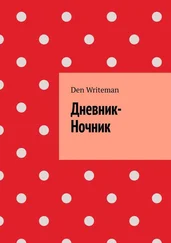The memory of that sabre has always fascinated me. I took for granted that it had once been issued to Granddad Ashton. It was the weapon of cavalry; ergo Granddad Ashton in his youth fought his battles on horseback—that is, if he had ever seen action. Perhaps he had been too young for the Charge of the Light Brigade, but surely he must have been in some other battle. Come to think of it, I never ever heard him say anything. In any case, I wasn’t old enough to think of a question.
Apart from John, the only other person I’d ever really taken to was Auntie Emmy. She always looked upon me with kindness and understanding. Whenever I visited the Ashtons with John, Auntie Emmy invariably greeted me with a warm smile, as if we were two conspirators with a hidden agenda, although such a highfallutin philosophy never entered my head, let alone crossed my mind. Auntie Emmy must have known about my real mother’s death; in fact everyone was in the know—except me. I was a rowing boat adrift on a foggy night in the busy shipping lanes of the channel. Perhaps that is why she took a special interest in me, though not, I must add, out of pity, and the rapport between us was genuine.
On one occasion when I had a raging toothache it was Auntie Emmy who took me to the dentist, an old man who must have gained his degree in the nineteenth century when possibly the only dental appliance was a pair of pliers. His surgery was the front room of his house, lit only by two gas mantles. He wore an old cardigan and a shirt fastened at the neck by a stud but with no collar.
Pushing his glasses on to his forehead, he gazed short-sightedly into my mouth. ‘Which one is it?’ he asked.
I looked across at Auntie Emmy.
‘You have to show him,’ she said helpfully.
I was at a loss for a moment. For most people visiting the dentist the toothache seems to disappear the moment they step over the threshold, and so it was with me, and I was afraid that I might point out the wrong one.
Luckily he put his finger in my mouth and waggled a tooth, and the pain was instantaneous. I jerked violently.
‘I thought it was,’ he said complacently, blissfully unaware of how close he’d come to losing a finger.
However, it was a quick, efficient extraction and triumphantly he held out the molar for me to see. There was a dark hole in it, no wonder it had caused me so much suffering. I was delighted and amazed that it had all been so quick and painless. I smiled at Auntie Emmy and was even more amazed when the dentist patted me on the head, called me a brave little man and gave me a toffee—a toffee of all things! He was probably looking forward to seeing me again in the very near future.
When we returned to Grandma Ashton’s, I gave the toffee to John and then we had tea—well, they had tea, but I had to make do with a glass of milk because I was in no condition to eat. But my day wasn’t ended. It was dark when Mother, John and I got on the tram. Mother was between John and me and I was squashed between her and a dozing old man. Why we had to sit there was beyond me; after all, apart from us and the conductor the tram was empty. No one spoke as the tram buckled and clattered up Oldham Road, and then almost imperceptibly the old man closed his eyes and began singing softly to himself in a cracked, tuneless voice. I was intrigued, and I turned my head to observe him more closely. Immediately Mother put her hand under my chin and whipped my head smartly to the front. After a short time I slowly turned to look at him again furtively and what impressed me most was his nose. It was large, round, extremely red and pockmarked, but before I could take a closer look my head was jerked back to neutral. The old man was still singing when we got off and straight away as the tram disappeared I asked Mother what was the matter with him, but Mother was reluctant to answer and I wondered if she’d heard me. Then she said, ‘That’s what you get from eating too much pork.’ This explanation, brooking no argument, knocked me flat. I was so impressed that I never got round to asking about the man’s nose; and it had such a profound effect on me that I avoided pork until I was well into my twenties, although I must have consumed buckets of alcohol since Dad bought me my first half a pint on my sixteenth birthday. The lesson to be learned here is: don’t muck about with the truth when dealing with children.
Now in the year 2003 I’m at my desk wearing headphones as I listen to a programme on the radio. I sit back in my chair staring at the ceiling wherein lies inspiration when, half listening to the disembodied voice from the radio, a man is urging us to clean up our rivers. This doesn’t particularly concern me as I don’t own one but his next remark has my full attention. The voice mentions Manchester Ship Canal. Immediately my mind races back to when I was about ten years old and standing on the bank of the Manchester Ship Canal, clutching a damp towel round my thin white shoulders, my lips blue with cold, teeth chattering like a pair of demented castanets, and looking round occasionally in case there was an approaching bobby, because swimming, splashing about and especially diving or jumping off the lock gates were strictly forbidden. We weren’t too bothered, though. In the event of a constable hurrying towards us, we’d simply jump into the water and swim to the opposite bank, and scrambling out we would pull faces at the sweating arm of the law, the width of the scum-laden, smelly canal protecting us. The police must have been aware of this tactic and wisely kept away—they had better things to do.
Deciding it might be warmer in the water, I was about to jump in when I noticed a small black object floating through the half-open, decaying lock gates. As it moved slowly towards the shrieking, juvenile, splashing mêlée, I was able to see what it was: a poor, dead dog floating majestically along, legs stiff and pointing to the sky. I quickly shouted a warning. I had to shout twice over the hullabaloo, pointing at the dog. When they realised what it was, there was panic as they parted to allow the dog unhindered passage to its Valhalla—just another incident on the turgid Manchester Ship Canal.
Returning to the present, I turn up the volume of my radio to hear the news that now at last the Manchester Ship Canal has been cleansed and purified, oxygenised or whatever, and for the first time in living memory can be enjoyed by the natural inhabitants, fish. But then the marine expert goes on to say, ‘In the old days, anyone found frolicking about in the oil-scummed waters of the canal was unceremoniously hauled out and rushed off to hospital to have their stomach pumped.’ On this note I switch off, and once again stare at the ceiling, recalling the dead-dog incident. It wasn’t unusual—sometimes dead cats, rags of clothing and unmentionables floated calmly along—and when the weather was unusually hot there was always a gang of young herberts splashing about among the jetsam. To my knowledge none of us went down with malaria, typhoid, yellow fever or beri beri. The only real threat was hypothermia, and certainly no one was hauled out and rushed off to the infirmary to have their stomach pumped. I can only assume that in those days our bodies developed an immunity to diseases not yet known to man.
It’s a good job my father didn’t get to hear about my frolicking in the Manchester Ship Canal. He had never chastised me physically before, not even a slap round my bottom, but if he found out he would be driven to break the rule of a lifetime. Luckily for me he never showed any interest in where I’d been, who I’d been with or how I’d managed to rip my jersey. If he’d asked me, I would have answered him truthfully—we lived in a moral climate. However, I was apprehensive that day when I returned home from the Manchester Ship Canal, hair all damp and spiky, that he would say something like ‘Where the dickens have you been?’ and like George Washington I would have to tell him.
Читать дальше












